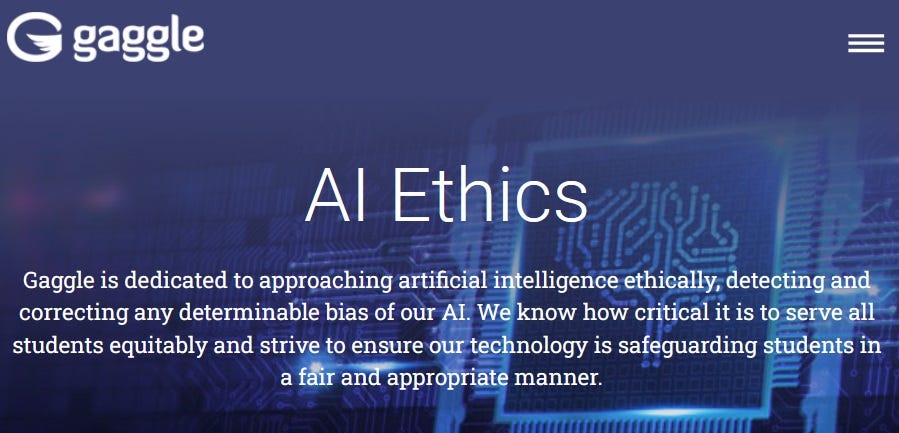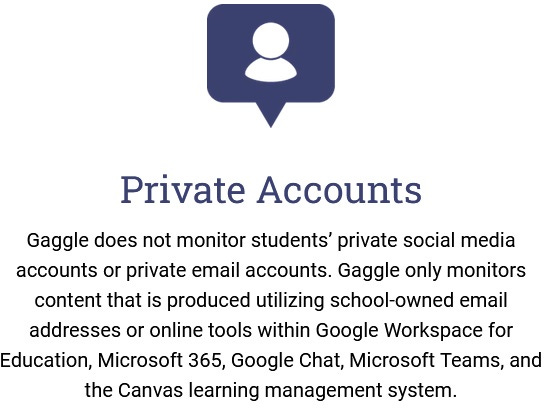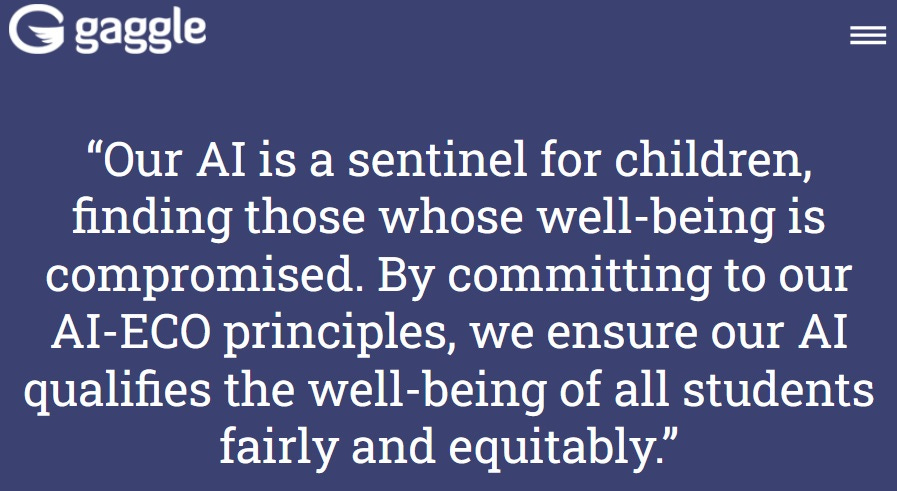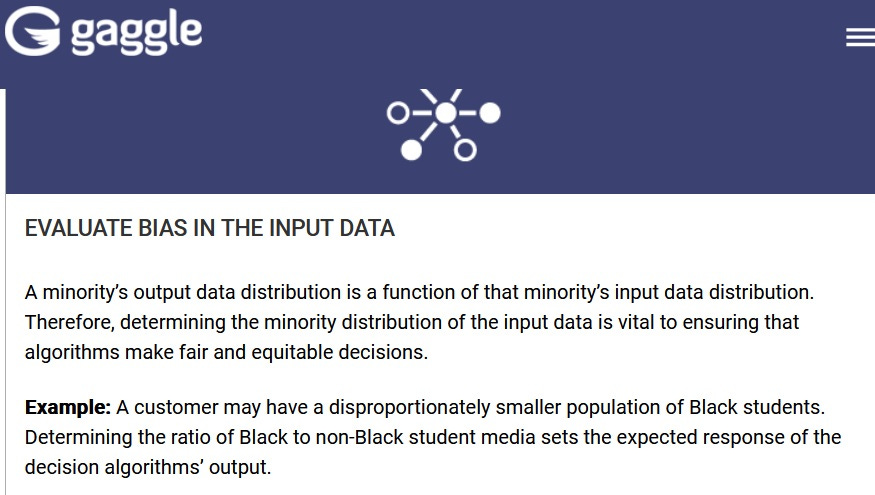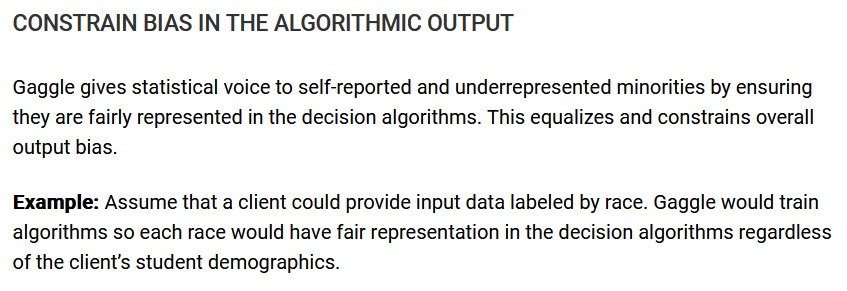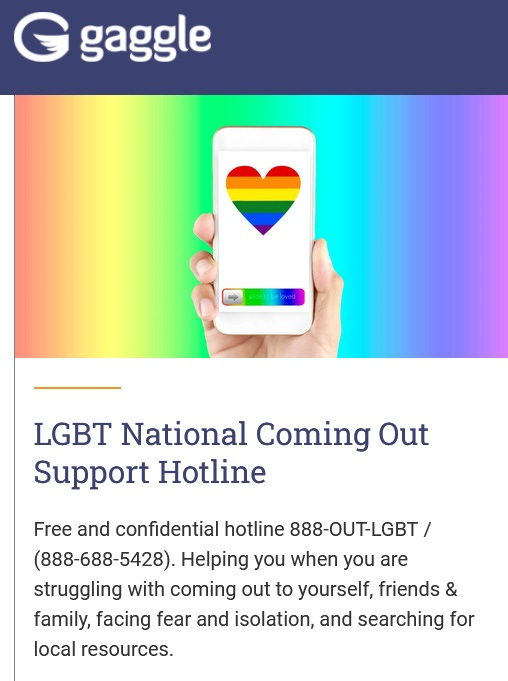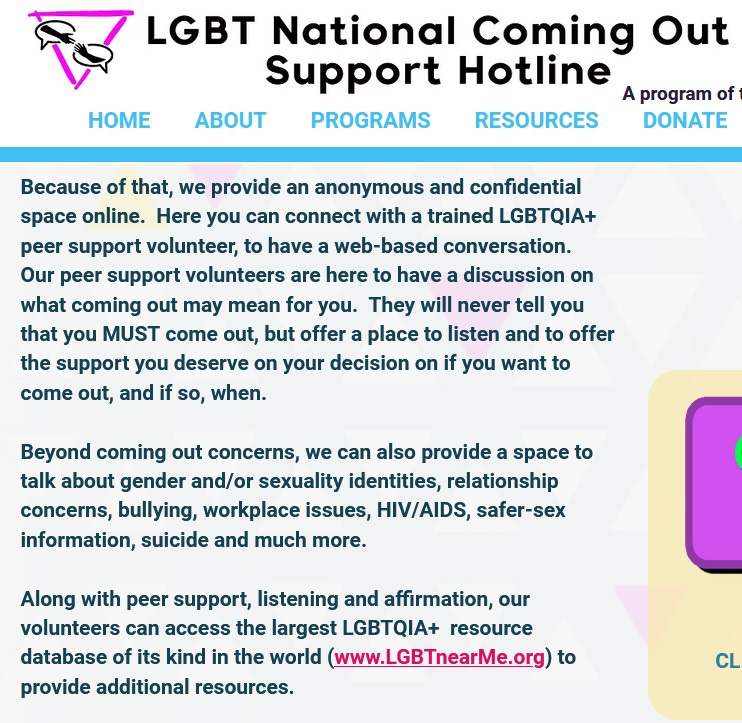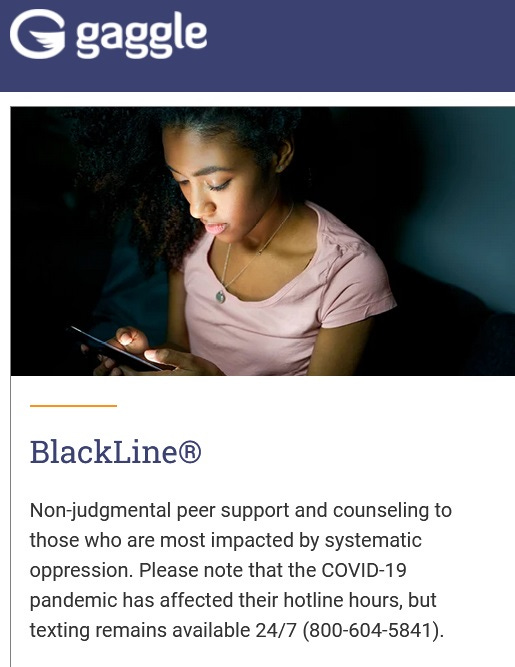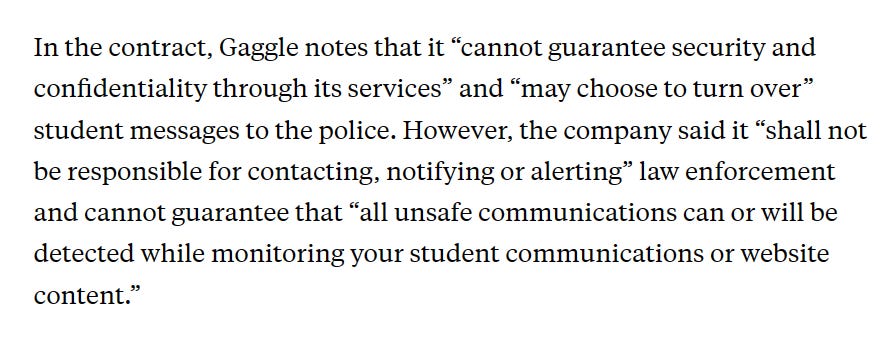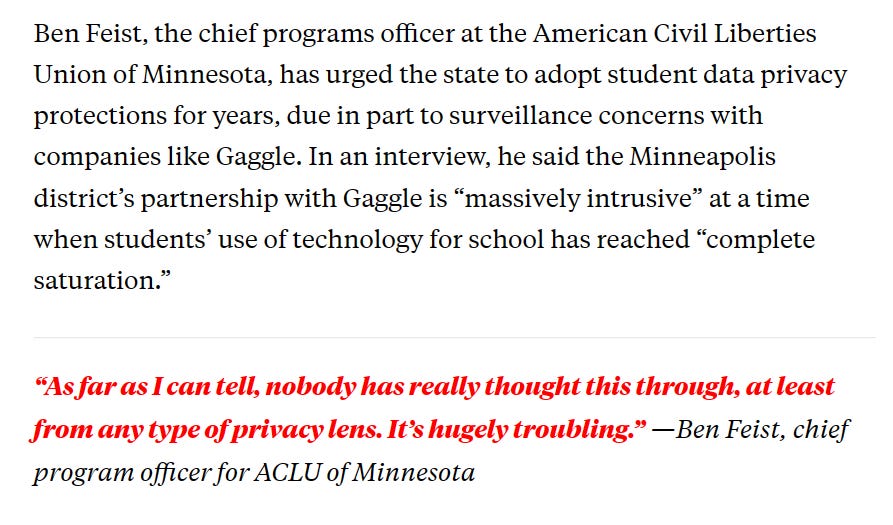GHAPS spent $28,072 on Gaggle during the 2022-23 school year. Gaggle is artificial intelligence (AI) software that monitors students for mental health problems by scanning emails, chats, and tools utilized by students to complete school assignments.
Upon first glance, this might sound like a good thing. After all, we all want students to receive the support they need, especially those who are struggling with anxiety and depression; but closer examination of the service is troubling.
First of all, like other monitoring tools installed on school-issued devices, it is a significant invasion of privacy. Perhaps just as troubling are Gaggle’s statements on bias, diversity, equity, and inclusion (DEI). Their overall position on DEI, although objectionable, is pretty standard in woke environments.
What is not standard is their position on bias and their AI-ECO (Evaluate, Constrain, Own) principles that “ensure the well-being of all students fairly and equitably”.
What this is essentially saying is that their algorithms will ensure that the number of students flagged as potentially having mental illness issues will be directly related to the identity characteristics of students in the overall population. For example, if 10% of the students are black, and there are 600 students, and 5% of the students are flagged as being potentially mentally ill, then 3 students flagged as being potentially mentally ill will be black. (600*.10*.05). Rather than identifying students with potential mental health related conditions based on factors related to mental health, the system will ensure that they are identified in proportion to their identity characteristics.
If the data collection capabilities, lack of privacy on school-issued devices, and identity characteristic based equitable identification of mental health conditions of Gaggle is not enough to be disturbing, you should also know that Gaggle recommends Student Support Resources. Among them are the Trevor Project, Blackline, LGBT National Coming Out, The Anti-Violence Project, and the Asian and Pacific Islander American Health Forum.
The Trevor Project was featured on Restore Ottawa in an earlier article describing web resources recommended by OAISD Health Education Coordinator Stacey Sills through her live binders. The Trevor Project states that its mission is to end teen suicide, but rather than referring troubled teens to parents or legitimate counselors, it is a social media site where 13 to 24-year-olds confused about their gender can meet and chat. The younger members can get advice from adults eager to help. Not only does The Trevor Project offer child sexual predators an opportunity to find victims, the site offers a ‘quick escape’ keyboard key so kids can exit rapidly if parents enter the room.
LGBT National Coming Out is another website advertised as offering support to teens questioning their gender and sexuality. LGBT National Coming Out also features a quick escape link at the bottom of the screen, as well as youth chatrooms.
The Anti-Violence Project, a site advertised as providing support for victims of violence, appears to be more of a site to encourage activism. On the Communities Against Hate page, they discuss partnering with social justice organizations to document hate violence such as anti-LGBTQ, anti-Black, anti-Muslim, anti-Immigrant, and anti-Disability (sort of like an anti-Racism Task Force). In addition, they have an action page and a page to help people get involved.
The Asian and Pacific Islander American Health Forum, offers COVID resources, racial justice resources, pushes HPV immunizations, and advocates for political initiatives such as the Health Equity and Accountability Act.
Perhaps the most disturbing resource is BlackLine, advertised as “non-judgmental peer support and counseling to those who are most impacted by systematic oppression.”
In addition to the student support resources offered by Gaggle, they also offer support via a blog, film list and other forms of social media such as podcasts and webcomics. There is a link to a glossary that provides definitions of common and ever-changing LGBT words such as packing which means, “Wearing a penile prosthesis or other object to emulate the appearance of having a penis,” and demisexual, meaning, “a person who does not feel sexual interest towards others unless a strong emotional connection is formed first,” and chaser, “a cis person with a fetishistic attraction towards trans people.”
The blog contains articles such as Unveiling the Power of Acceptance: The Impact of Supportive Communities on LGBTQ+ Youth’s Mental Health. The film list contains links to youtube videos like the Award-winning Coming Out Short Film: Straight A, that begins with two teenage males in bed together. The media such as podcasts and webcomics, provide links to podcasts such as Dyking Out, and Queerology.
In a news article focused on Gaggle, ‘Don’t Get Gaggled’: Minneapolis School District Spends Big on Student Surveillance Tool, Raising Ire After Terminating Its Police Contract, it warns of the effects of pervasive government surveillance upon youth, and explains how software intended to keep children safe does not always have the desired outcome. The article focuses on the Minneapolis School District which purchased Gaggle licenses for use in the district.
Data collection and privacy concerns are a continuing issue.
This quote from the article shows how software loaded onto school issued devices can be used to invade privacy under the guise of keeping children safe.
As referenced above, Gaggle was created by the CEO and Founder Jeff Patterson.
The following can be found on Patterson’s LinkedIn page.
Under the guise of keeping children safe, intrusive AI data collection software is being loaded onto school issued devices. These devices are required to complete assignments and students must bring them to school fully charged each day. In this case, the software company recommends very controversial support pages for students. If Gaggle determines a student needs support, shouldn’t the AI send a warning message to the parents? GHAPS is trusting this company to keep local children safe. Do you believe Gaggle will keep your child safe as well?


